You’re about to embark on a journey to discover the vibrant cultural heritage of Mali, a West African country known for its rich traditions and lively music scene.
Experience the soul of this West African nation through its numerous festivals, which showcase a blend of ancient traditions and contemporary expressions.
From the desert landscapes of Timbuktu to the banks of the Niger River, festivals celebrating music, dance, crafts, and spiritual traditions take place throughout the year, offering a unique window into the country’s diverse culture and heritage.
These events are not just tourist attractions, but authentic cultural experiences where local communities come together to celebrate their traditions, providing you with unforgettable travel memories.
Experiencing Mali’s Cultural Heritage Through Festivals
Festivals in Mali offer a unique window into the country’s diverse cultural landscape. You’ll discover that these events are not just entertainment, but living expressions of cultural heritage passed down through generations.
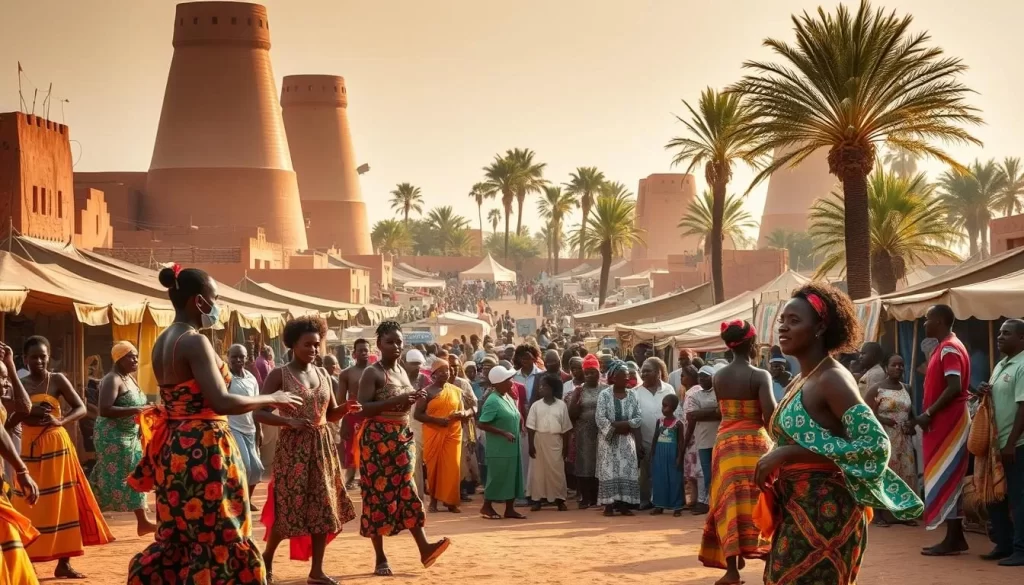
These cultural gatherings serve as platforms where different ethnic groups showcase their unique traditions. The communal nature of Malian festivals reflects the country’s emphasis on collective identity and shared heritage.
The Significance of Festivals in Malian Culture
Festivals in Mali are much more than entertainment – they’re a celebration and preservation of traditions. Many celebrations mark important agricultural cycles, historical events, or religious observances, blending spiritual significance with community bonding.
Best Times of Year to Experience Mali’s Festival Scene
February emerges as the prime festival month in Mali, with favorable weather and multiple major events like the Festival sur le Niger and Festival au Désert. However, meaningful cultural events occur throughout the year, tied to agricultural cycles or historical commemorations.
| Month | Festival | Location |
|---|---|---|
| February | Festival sur le Niger | Ségou |
| February | Festival au Désert | Timbuktu |
| May | Plastering the Great Mosque | Djenné |
Mali’s Renowned Music Festivals
Mali is home to some of the most spectacular music festivals in Africa. These events are not just entertaining; they are also deeply rooted in the country’s culture and history. Mali’s music festivals offer a unique blend of traditional and modern music, making them a must-visit for any music enthusiast.
Festival au Désert (Timbuktu)
Festival au Désert, held near Timbuktu, is one of Mali’s most iconic music festivals. It evolved from a traditional Tuareg gathering into an international event celebrating peace and music. The festival commemorates the 1996 Flame of Peace ceremony, where over 3,000 firearms were burned, symbolizing the end of regional conflicts.
The stage is set against the backdrop of the Sahara Desert, creating a surreal atmosphere. International artists like Robert Plant and Justin Adams perform alongside Tuareg musicians, making it a unique musical experience.
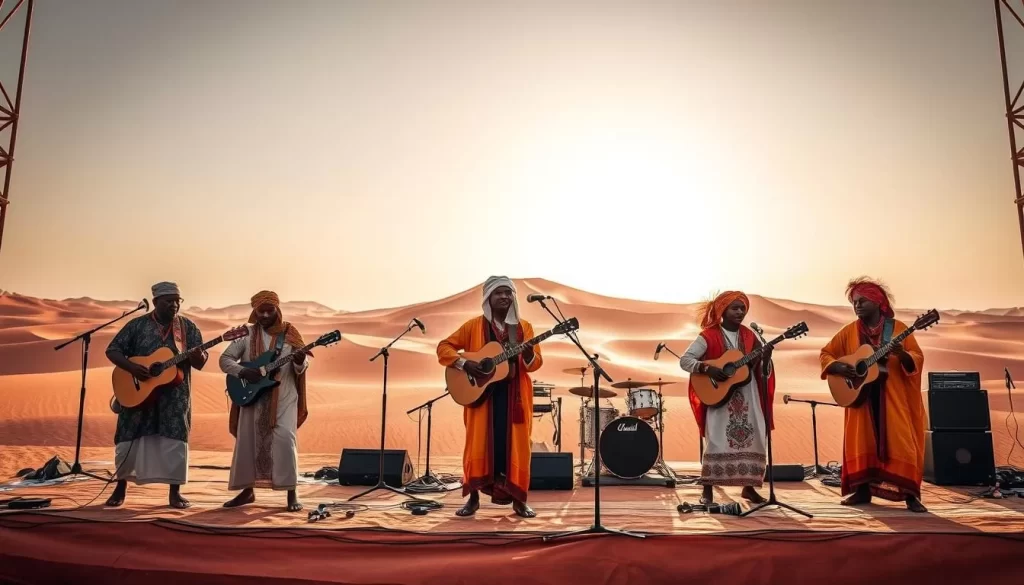
Learn More
Festival sur le Niger (Ségou)
Festival sur le Niger in Ségou is a multisensory experience that takes place along the Niger River. The festival features music performances, traditional puppet shows, craft markets, and pirogue boat races, transforming Ségou into a vibrant cultural hub.
You can witness at least 15 different puppetry and dance styles unique to the region, alongside performances by Mali’s celebrated musicians. The festival is a celebration of Malian culture and its rich musical heritage.
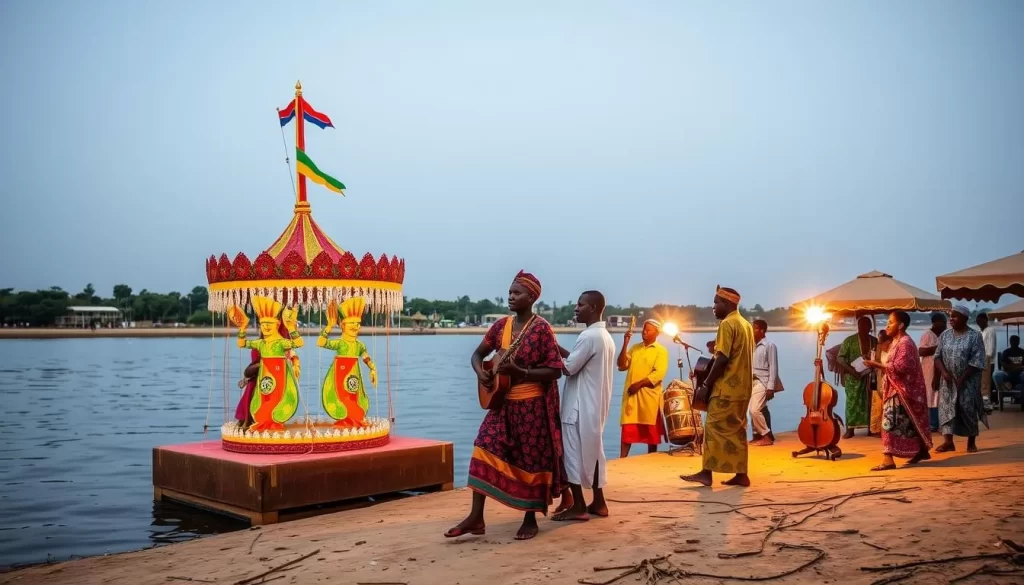
Festival International de Jazz de Tombouctou
The Festival International de Jazz de Tombouctou offers a fascinating fusion of traditional Malian sounds with international jazz influences. Set within the historic mud-brick buildings of Timbuktu, the festival creates a unique cultural experience.
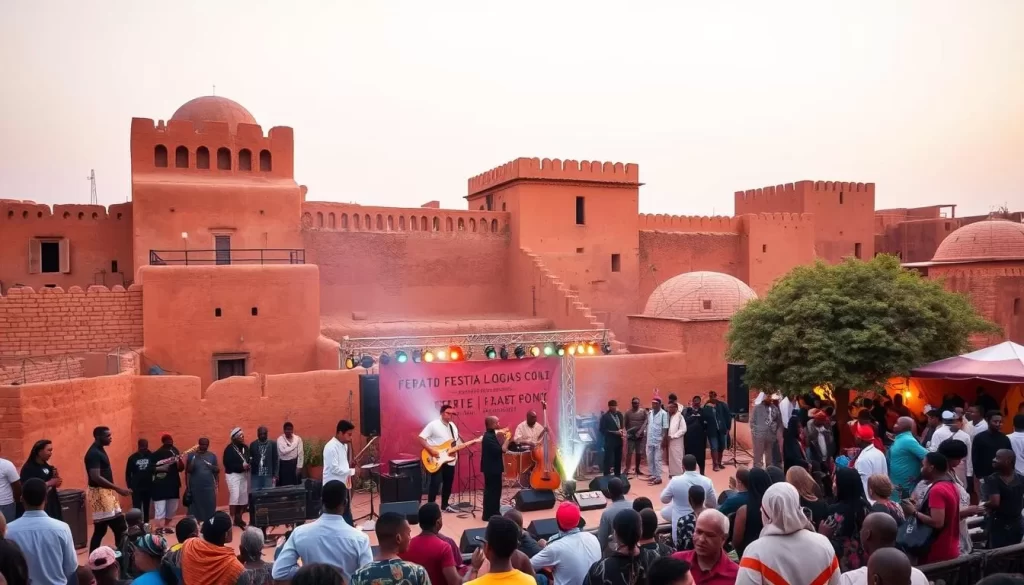
Traditional and Cultural Celebrations in Mali
From ancient rituals to modern-day festivities, Mali’s cultural celebrations are a testament to the country’s diverse heritage. You can experience the richness of Malian culture by participating in its various traditional and cultural celebrations.
Dogon Mask Festival
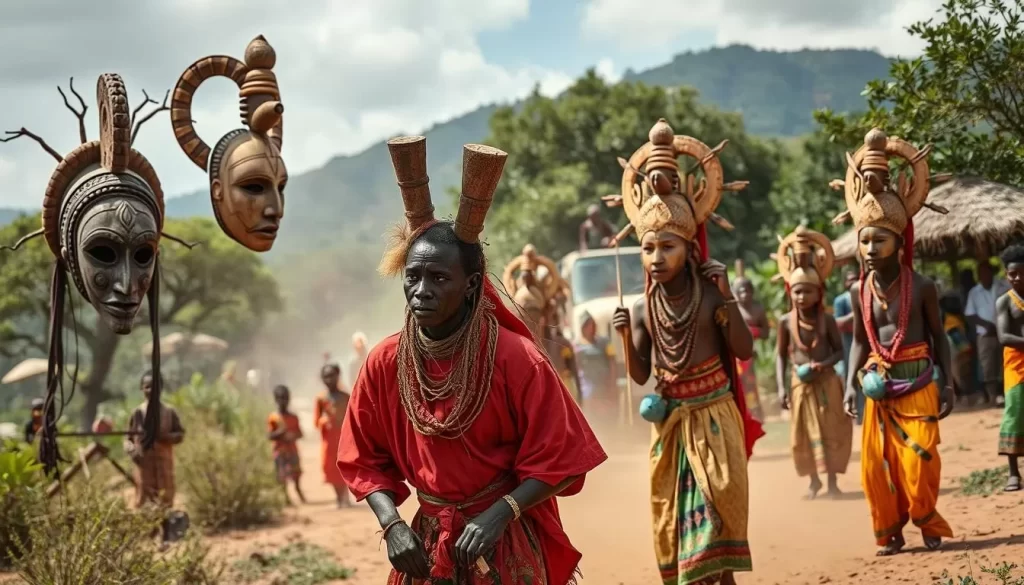
The Dogon Mask Festival, held in April, is one of Mali’s most famous gatherings. During this five-day celebration in Dogon Country, you’ll witness how spiritual beliefs are expressed through art and performance. The masks worn by men represent Amma, the Dogon goddess of creation, and are believed to contain the souls of the dead and drive away evil spirits.
Toward the end of the event, buffalo and hyena masks are believed to predict the tribe’s future. This festival offers you a rare glimpse into one of Mali’s most sacred traditions.
Plastering the Great Mosque of Djenné
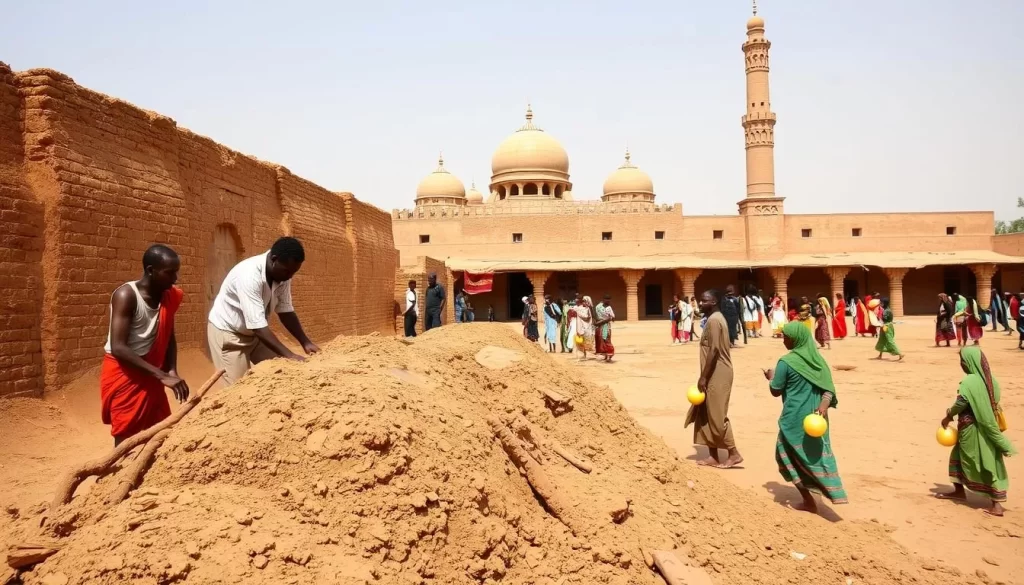
The annual Plastering of the Great Mosque of Djenné is an extraordinary community event where the entire city mobilizes to preserve their UNESCO World Heritage mud-brick mosque. You’ll be amazed by the organization of this massive undertaking, as men apply mud while women and girls transport water, and young boys help prepare the mud mixture.
This communal effort culminates in a joyous feast with dances and drumming, showcasing the community’s cooperation and cultural heritage.
Festival de la Musique Mandingue
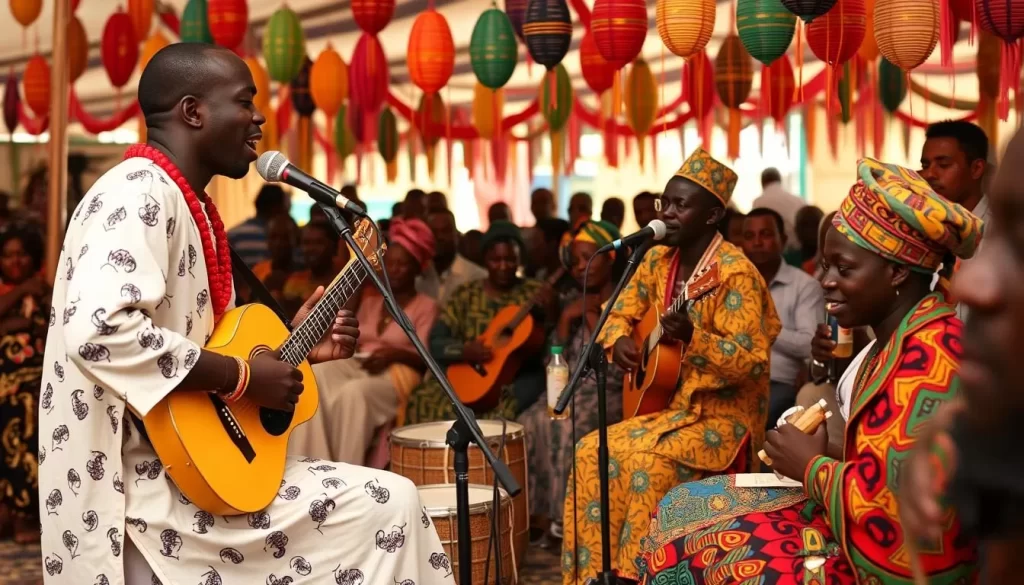
In Bamako, the capital of Mali, the Festival de la Musique Mandingue celebrates the profound musical traditions of the Mandingue people. This festival is centered around the ancient griot tradition of oral historians who preserve cultural knowledge through song.
By attending this festival, you’ll gain insights into Mali’s rich cultural heritage and the importance of music in Malian culture.
Mali: Top Festivals to Check Out When Visiting by Region
From the riverside settings of Mopti to the dramatic escarpments of Dogon Country, Mali’s regional festivals are a treasure trove of cultural experiences. As you travel through the country, you’ll discover that each region offers a unique blend of traditional practices, cultural heritage, and breathtaking landscapes.
Festivals in Mopti and Dogon Country
The Mopti region and Dogon Country are home to some of Mali’s most vibrant festivals. The Diamwari Festival, held along the Bani River’s banks, is a celebration of “happiness” that takes place over three days in February. The festival features gigantic puppets from Djenné, traditional Dogon masks, and exciting pirogue boat races.
Diamwari Festival
The Diamwari Festival is a showcase of Mali’s rich cultural heritage, with visitors able to purchase unique crafts from local artisans. The festival’s pirogue race is a highlight, with winners receiving money and victory flags called jonjon.
Festival sur le Toit du Monde
The Festival sur le Toit du Monde (Festival on the Roof of the World) takes place in the breathtaking UNESCO-listed Bandiagara Escarpment in Dogon Country. This festival offers a dramatic backdrop of ancient cliffside villages, traditional music, masked dances, and storytelling.
Festivals in Kayes Region
Traveling to the western Kayes region near the border with Burkina Faso, you’ll find unique festivals that reflect the region’s abundant wildlife and cultural heritage. The Gouin Festival is a three-day January celebration where musicians perform amidst the region’s wildlife, including monkeys and hippos along the Senegal River.
Gouin Festival
The Gouin Festival is a celebration of the region’s rich cultural practices, with a focus on traditional music and performance.
International Rails Festival
The International Rails Festival in Kayes celebrates the region’s railway heritage with a blend of cultural performances, sporting events, and intellectual discussions that connect Mali with neighboring Senegal.
Rural Celebrations: Daoula-Ba Festival in Sôh
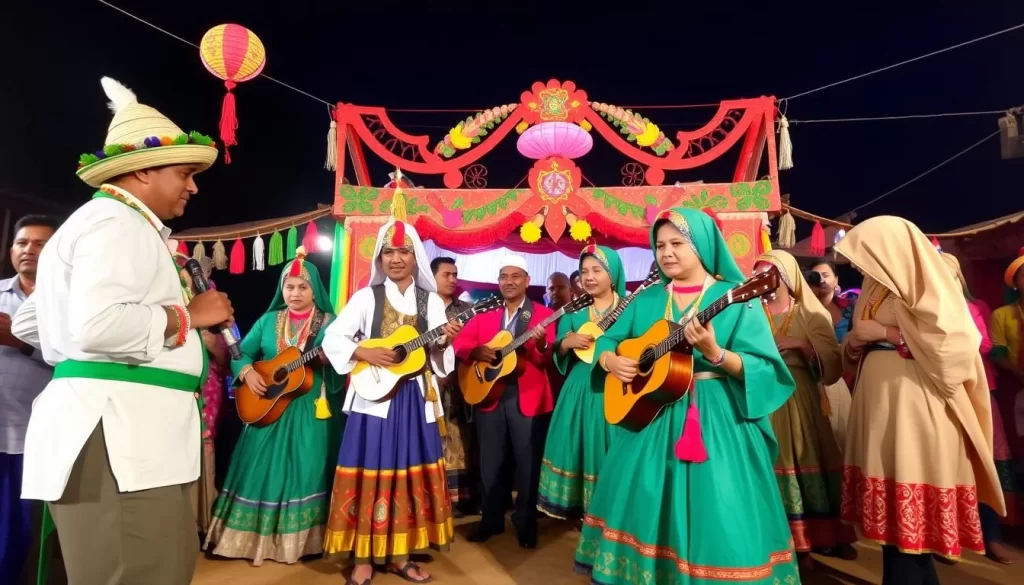
For a truly authentic rural experience, the Daoula-Ba Festival in the village of Sôh showcases Mali’s agricultural traditions, particularly organic cotton production, alongside vibrant women’s drum circle dances. This festival offers a unique glimpse into the country’s rural cultural practices.
Exploring Mali’s festivals by region provides a rewarding experience, with each celebration intimately connected to its specific landscape. Whether it’s the riverside setting of Diamwari, the dramatic escarpments of Dogon Country, or the railway history of Kayes, these regional festivals offer a chance to interact with communities that maintain strong traditional practices.
Planning Your Festival Trip to Mali
To immerse yourself in Mali’s rich cultural heritage, it’s essential to plan your festival visit strategically. Mali hosts a variety of festivals throughout the year, each offering a unique glimpse into the country’s vibrant culture.
Travel Tips and Safety Considerations
When traveling to Mali for a festival, it’s crucial to research current safety conditions and travel advisories, as security situations can vary by region. Consider working with reputable local tour operators who can provide updated information and guide you through the process. Planning your trip during the peak festival season from January through April can also enhance your experience, as the weather is most pleasant and many major celebrations take place during this time.
Accommodation Options During Festival Season
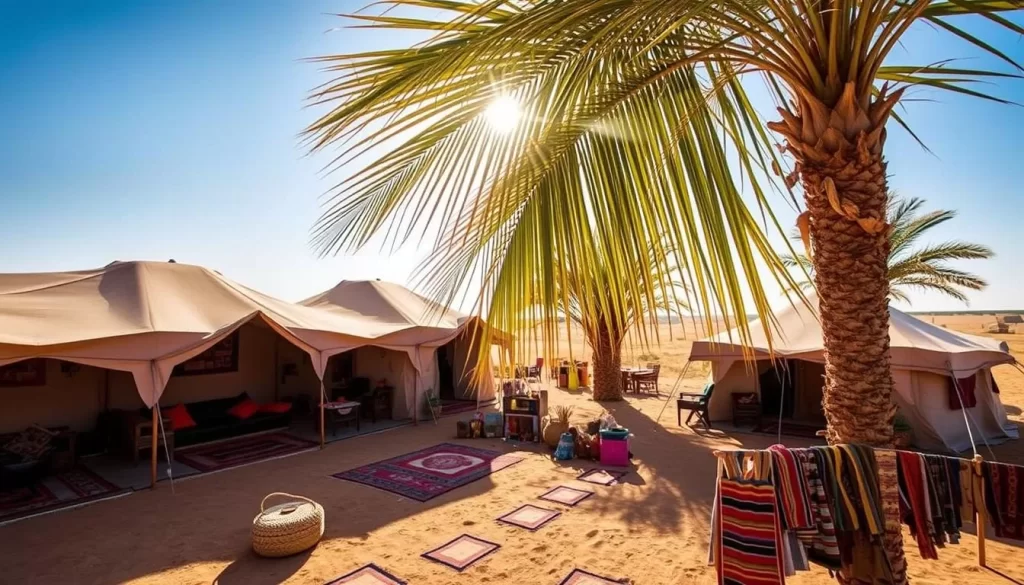 Accommodation options near festival sites often fill up quickly, so it’s advisable to book well in advance. Places like Hotel Djoliba in Ségou offer comfortable bases for attending the Festival sur le Niger, with amenities such as air-conditioned rooms. Exploring the surroundings of each destination can also enrich your festival experience, with opportunities to visit nearby villages and learn about traditional crafts.
Accommodation options near festival sites often fill up quickly, so it’s advisable to book well in advance. Places like Hotel Djoliba in Ségou offer comfortable bases for attending the Festival sur le Niger, with amenities such as air-conditioned rooms. Exploring the surroundings of each destination can also enrich your festival experience, with opportunities to visit nearby villages and learn about traditional crafts.
Conclusion
With its array of captivating festivals, Mali offers an immersive cultural experience that will leave you with unforgettable memories. You’ll discover the country’s rich heritage through its diverse festival landscape, from the haunting desert melodies of Festival au Désert to the communal mud-plastering ceremony at Djenné’s Great Mosque.
Your trip to Mali will be a journey through breathtaking landscapes and a deep dive into its musical heritage, which has influenced global sounds. The memories you’ll treasure most might be the unexpected moments: conversations with musicians after performances, joining in community dances, or sampling local food in bustling festival markets.
As you return home from your Malian festival adventure, you’ll carry with you not just photographs but a deeper appreciation for how communities preserve their heritage through celebration, music, and shared traditions.
The above is subject to change.
Check back often to TRAVEL.COM for the latest travel tips and deals.
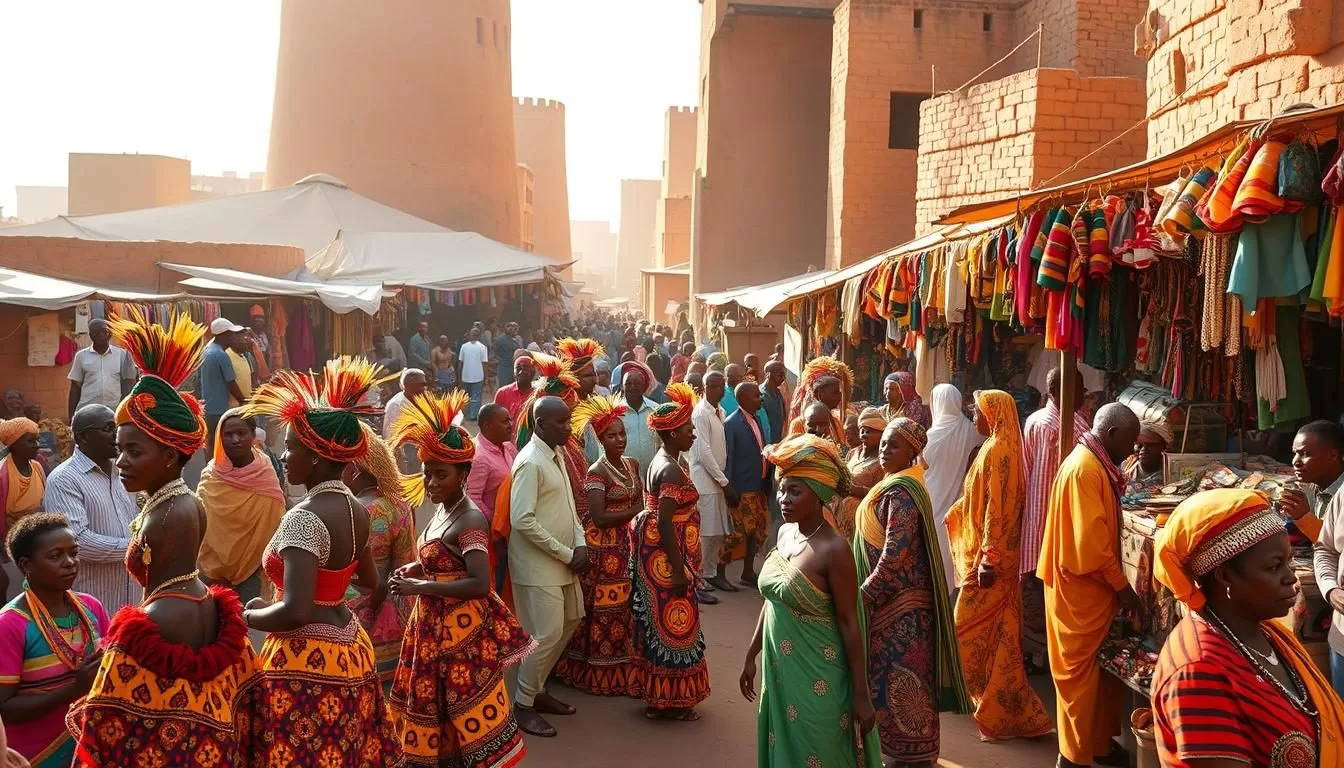
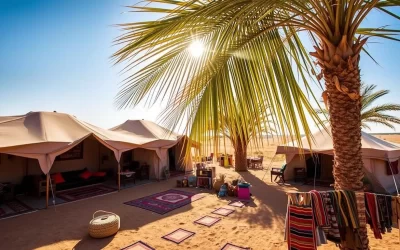
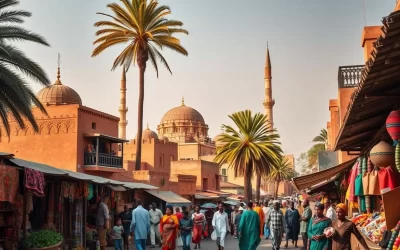
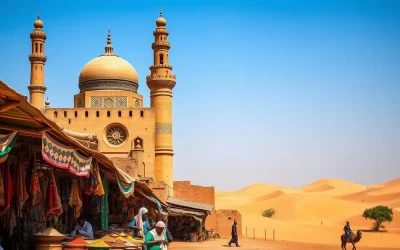
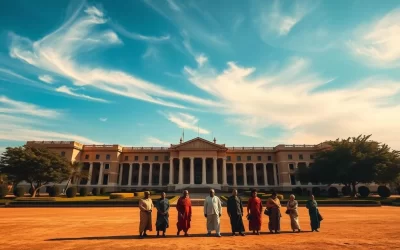

0 Comments